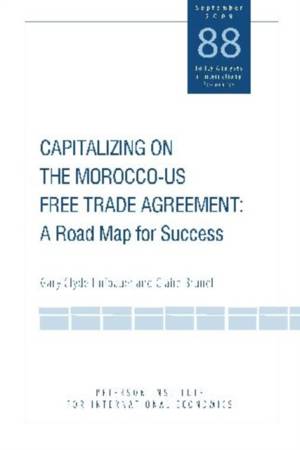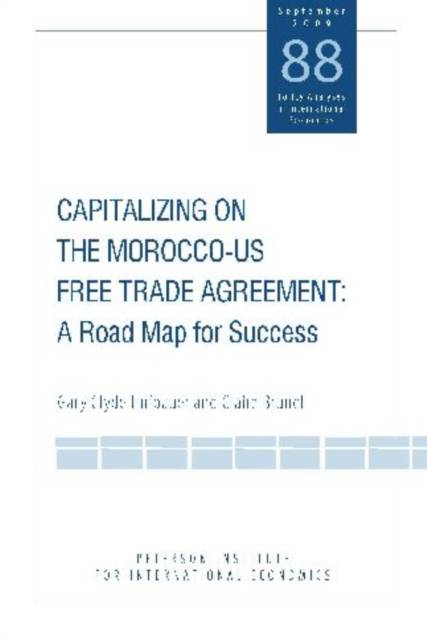
Je cadeautjes zeker op tijd in huis hebben voor de feestdagen? Kom langs in onze winkels en vind het perfecte geschenk!
- Afhalen na 1 uur in een winkel met voorraad
- Gratis thuislevering in België vanaf € 30
- Ruim aanbod met 7 miljoen producten
Je cadeautjes zeker op tijd in huis hebben voor de feestdagen? Kom langs in onze winkels en vind het perfecte geschenk!
- Afhalen na 1 uur in een winkel met voorraad
- Gratis thuislevering in België vanaf € 30
- Ruim aanbod met 7 miljoen producten
Zoeken
Capitalizing on the Morocco-US Free Trade Agreement
A Road Map for Success
Gary Clyde Hufbauer, Claire Brunel
€ 44,45
+ 88 punten
Omschrijving
This study assesses the US-Morocco free trade agreement (FTA) and identifies shortcomings in the implementation of the US-Morocco FTA, provide policy recommendations for better leveraging the FTA, and suggest ways for Morocco to take better advantage of its cooperation agreements with the European Union. The study consists of four components. First, the study uses statistical and modeling work to compare the experience of the US-Morocco FTA with the experiences of US FTAs with Chile and Jordan. Second, the study provides a qualitative analysis of the US FTAs with Chile and Jordan to suggest best practices for Morocco to get the most out of its FTA with the United States. Third, the study looks at Morocco's trade agreements with the European Union in order to further guide the implementation of the US-Morocco FTA in light of the successes and failures of EU-Morocco trade relations. Fourth, the study identifies shortcomings in the implementation of the US-Morocco FTA and in EU agreements with Morocco, with a focus on agriculture, textiles, services, and intellectual property. Finally, the study provides recommendations on reforms the Moroccan government could implement in order to take greater advantage of the US FTA and EU agreements, both at the border and behind the border, and considers areas of the US FTA that could benefit from renegotiation, as well as the direction new provisions should take.
Specificaties
Betrokkenen
- Auteur(s):
- Uitgeverij:
Inhoud
- Aantal bladzijden:
- 266
- Taal:
- Engels
- Reeks:
- Reeksnummer:
- nr. 88
Eigenschappen
- Productcode (EAN):
- 9780881324334
- Verschijningsdatum:
- 15/08/2009
- Uitvoering:
- Paperback
- Formaat:
- Trade paperback (VS)
- Afmetingen:
- 150 mm x 226 mm
- Gewicht:
- 385 g

Alleen bij Standaard Boekhandel
+ 88 punten op je klantenkaart van Standaard Boekhandel
Beoordelingen
We publiceren alleen reviews die voldoen aan de voorwaarden voor reviews. Bekijk onze voorwaarden voor reviews.









